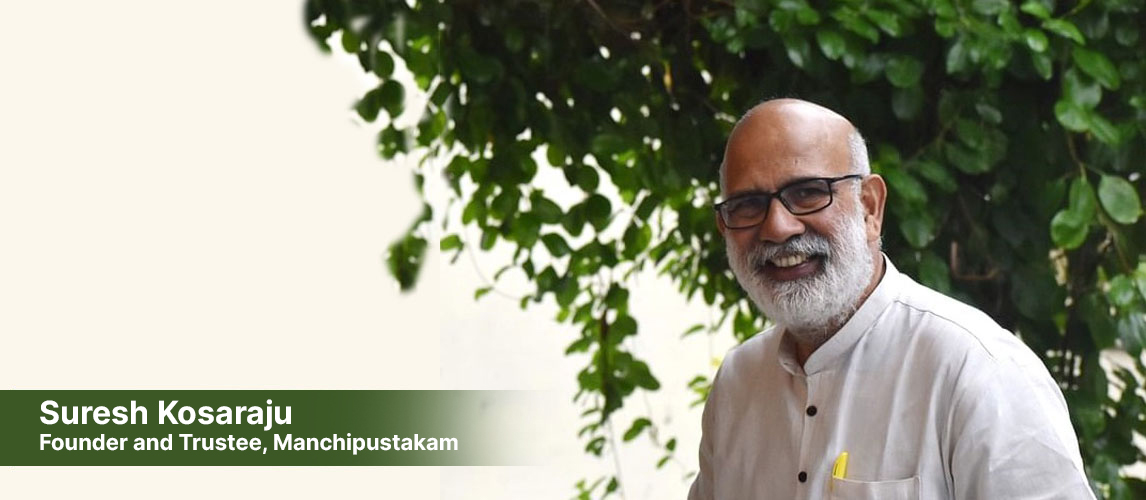In conversation with Suresh Kosaraju of Manchi Pustakam, a non-profit promoting Telugu language reading

Do good for society but don’t think of it as a service. Consider it your responsibility.
That’s the golden advice Mr. Suresh Kosaraju, an advocate and promoter of Telugu literature among children, hands out to our young do-gooders.
In our first episode of TALYouth Hour, which introduces leaders in social advocacy, social entrepreneurship, and philanthropy, we interviewed Mr. Suresh Kosaraju, co-founder, and trustee, Manchi Pustakam. He emphasized the need to bridge achievement gaps in education and the role of books in this conversation.
A postgraduate in agricultural science, he is also associated with grassroots initiatives related to natural resources management and rural livelihoods.
With a simple goal of improving children’s reading proficiency in Telugu, he, along with his team, founded Manchi Pustakam. It translates to a “good book” in English.
“Our objectives were only to promote books in Telugu [language] for children. That’s as simple as that,” he said unassumingly. “I must say and emphasize that we are not trying to change the entire world. In the sense that we do not have very big goals. We are also trying to help those who want to learn Telugu.”
Excerpt from the interview: Mr. Kosaraju on always putting people first
In line with this philosophy, Mr.Kosaraju recommends starting small and taking one step at a time to our young TAL Scouts passionate about creating social impact. He also urges those interested in serving marginalized communities to always keep people first. That means being good listeners and finding solutions that center on those we wish to serve. Learning and un-learning from their experiences are essential, he stresses.
“Several times, we go with ready-made solutions to these communities, but it would be good to go and understand the reality and see what will help them and if we can, or if we should even intervene,” said Mr. Kosaraju.
Talking about inculcating the reading habit among young children, he discourages adults from forcing it on kids, but he underscores the importance of access to books for all children.
Excerpt from the interview: Mr. Suresh Kosaraju elaborates on the achievement gaps caused due to the lack of availability of reading and printed material to underserved children.
Pattern recognition is an essential element for developing reading skills. The absence of printed material and books for many children from disadvantaged backgrounds becomes a learning impairment, he explained.
“We know that with the surveys that have been done every year, the reading skills of children in the seventh class (grade) is not up to the mark of, say, second or third class (grade) child.”
As a trust, they regularly work with grassroots organizations to ensure their books reach children with limited access.
Mr.Kosaraju recalls reading the book “The Boy Who Harnessed Wind.”
“He [the protagonist] was a school dropout. And he had access to a public library that was created through book donation. And apparently, that boy learned how to make a windmill, out of a book that he could locate in the public library,” he said, stressing on books as a learning tool. “It’s really very surprising to me what a book can do and what a book donation can do in a remote village in Africa.”
Reflecting further, he reiterated the importance of access to books for all children and the need for conducting book drives.
“It’s very important for people who can afford to continue with such activities [donate a book].
He ends with a message, “Happy reading and happy donating,” as per your capacity.
Click here for more information on the TALYouth Book Donation Drive
